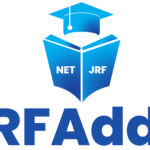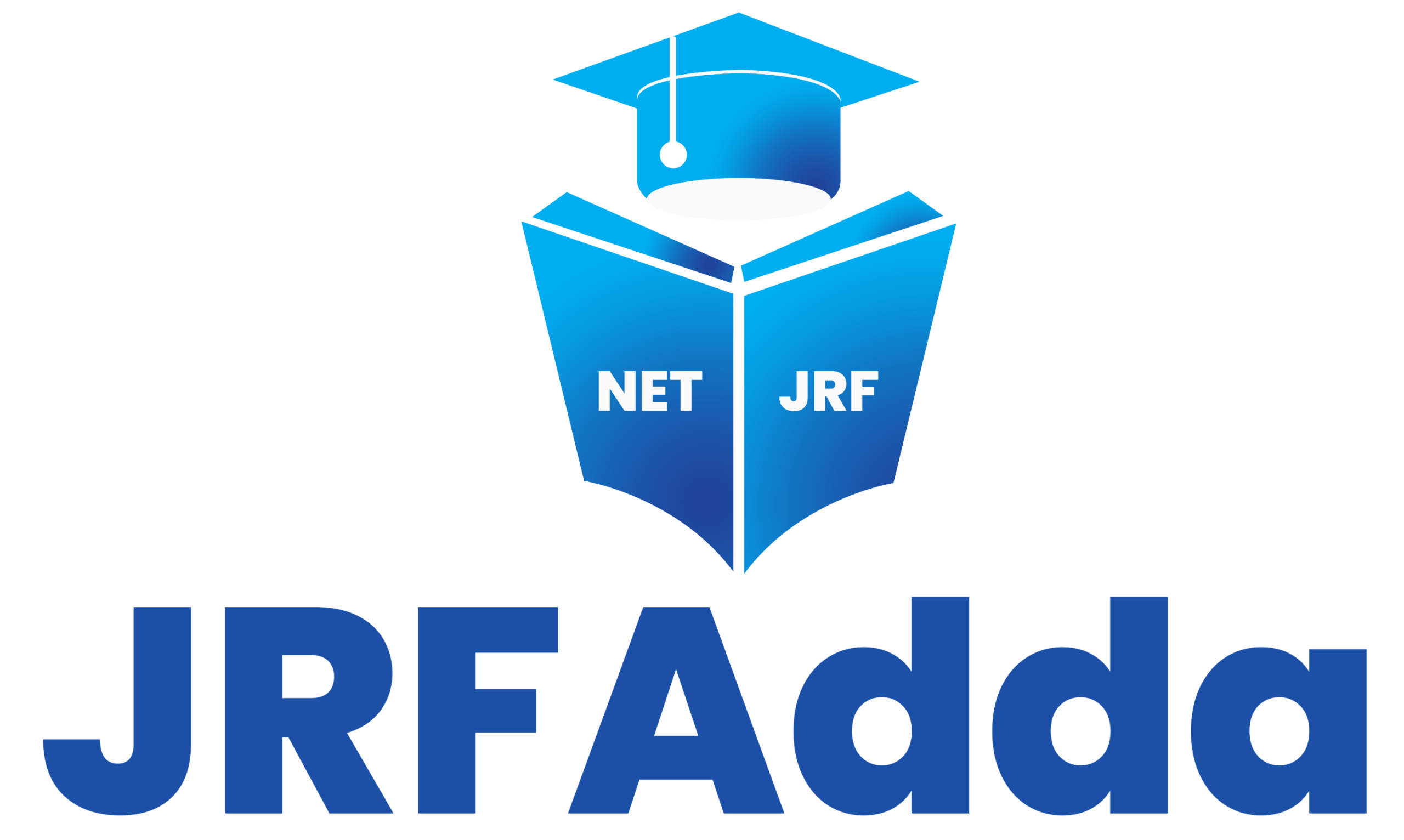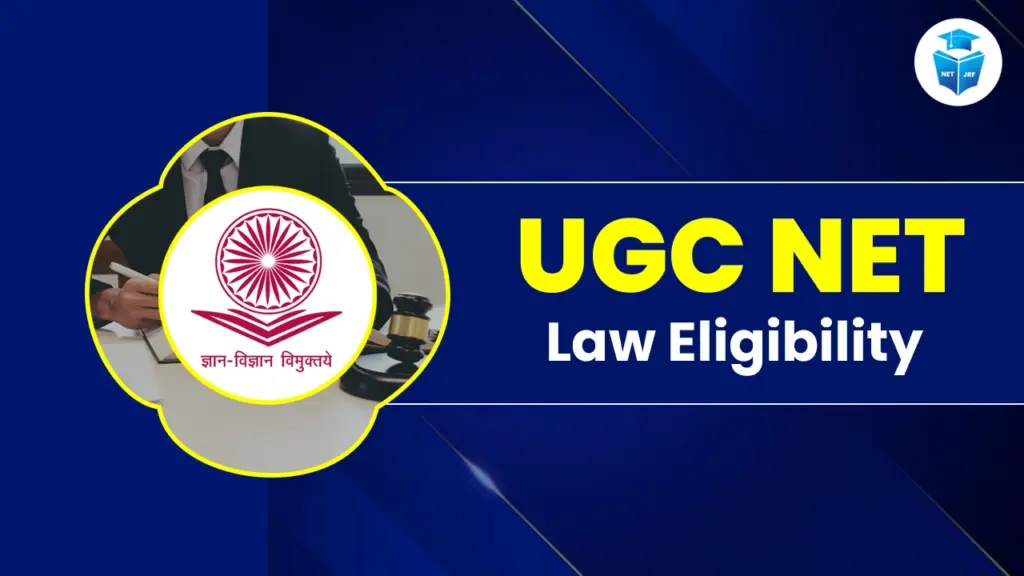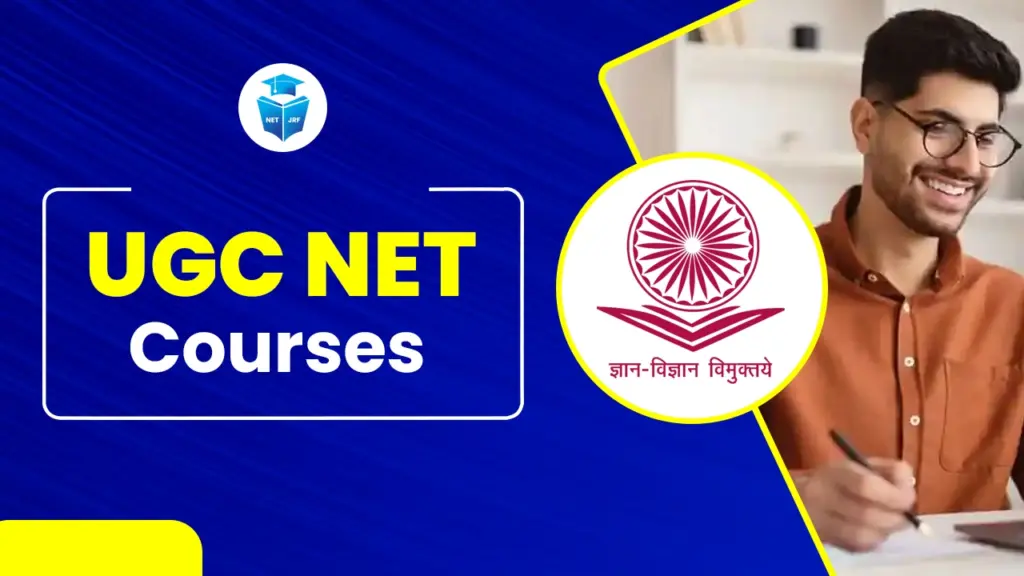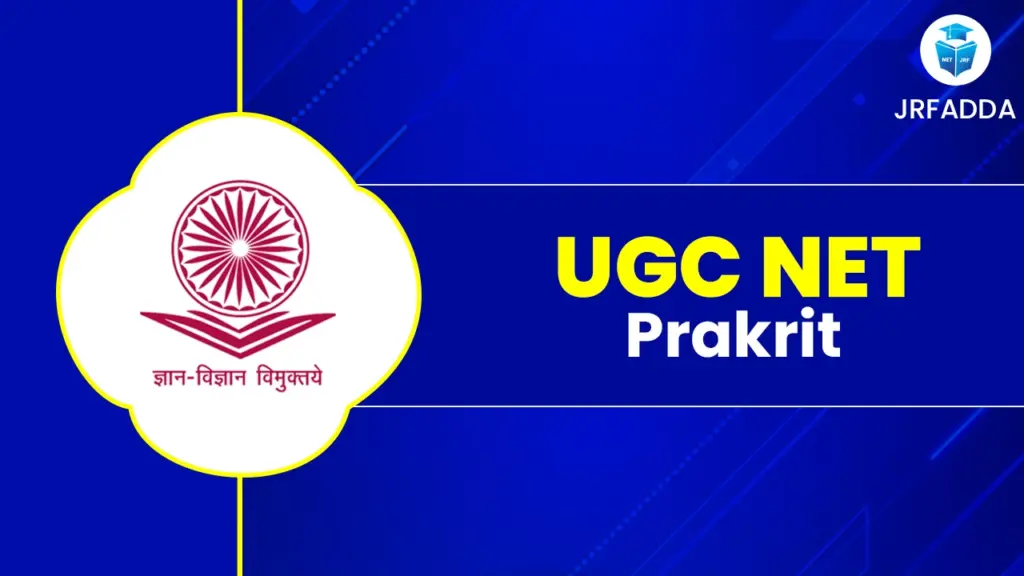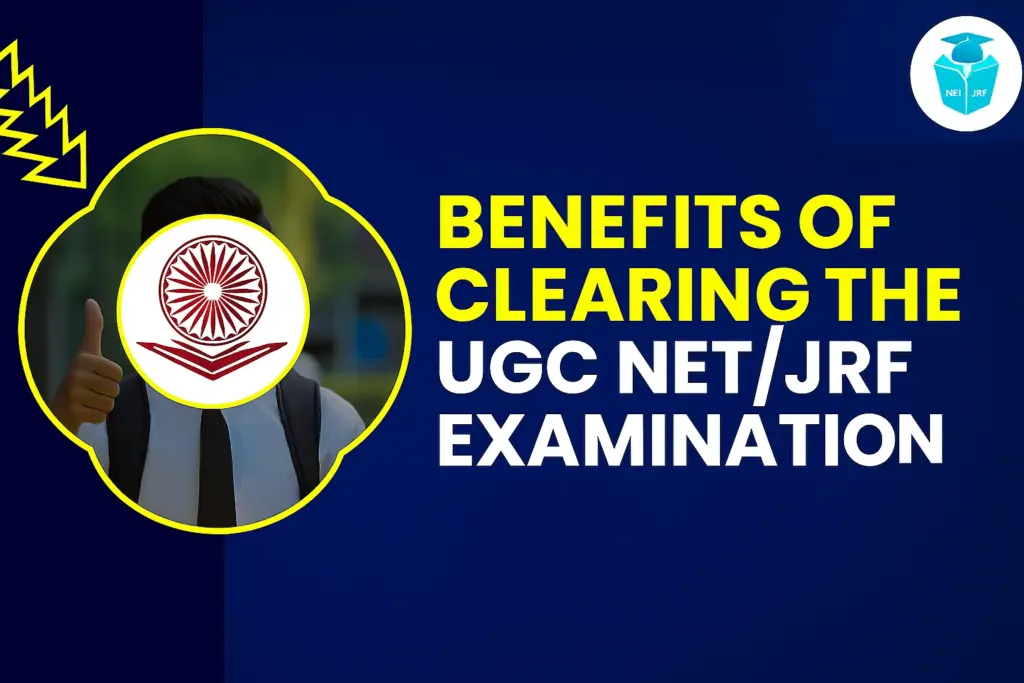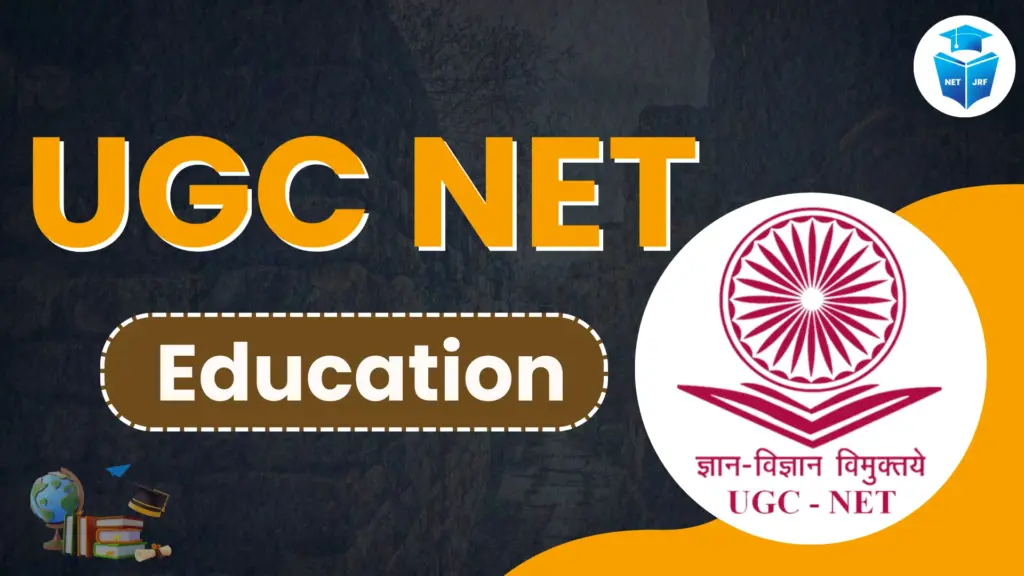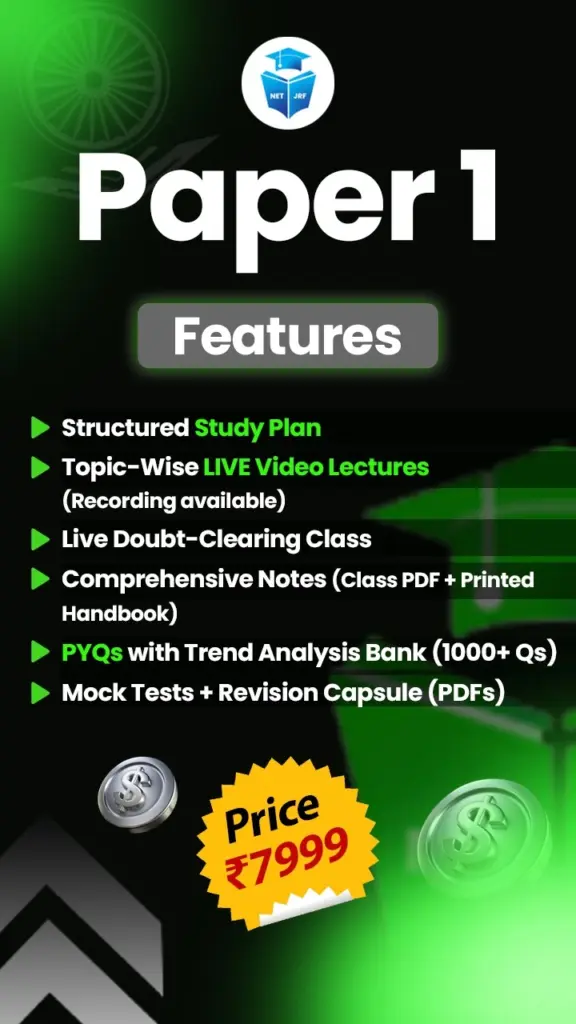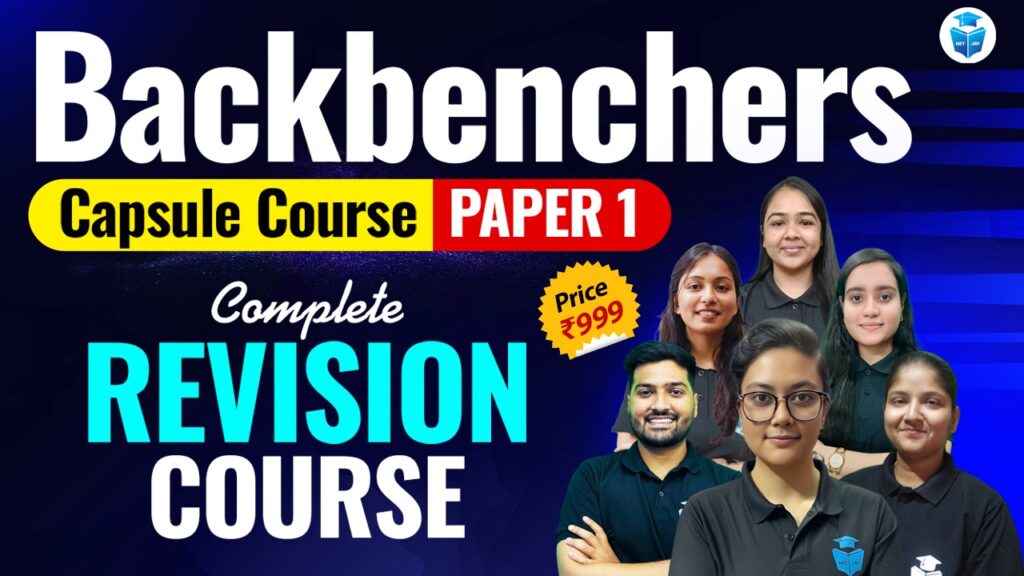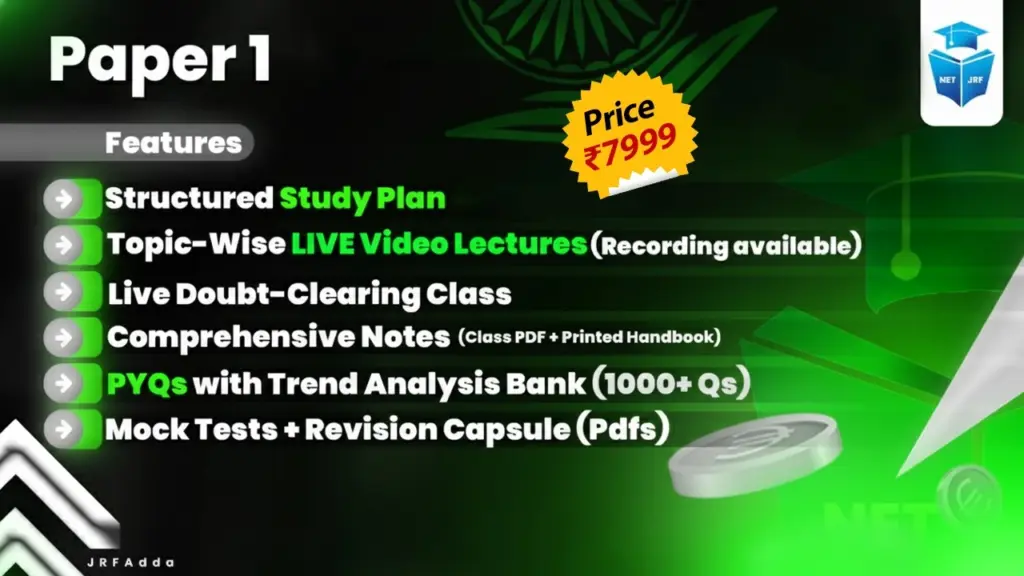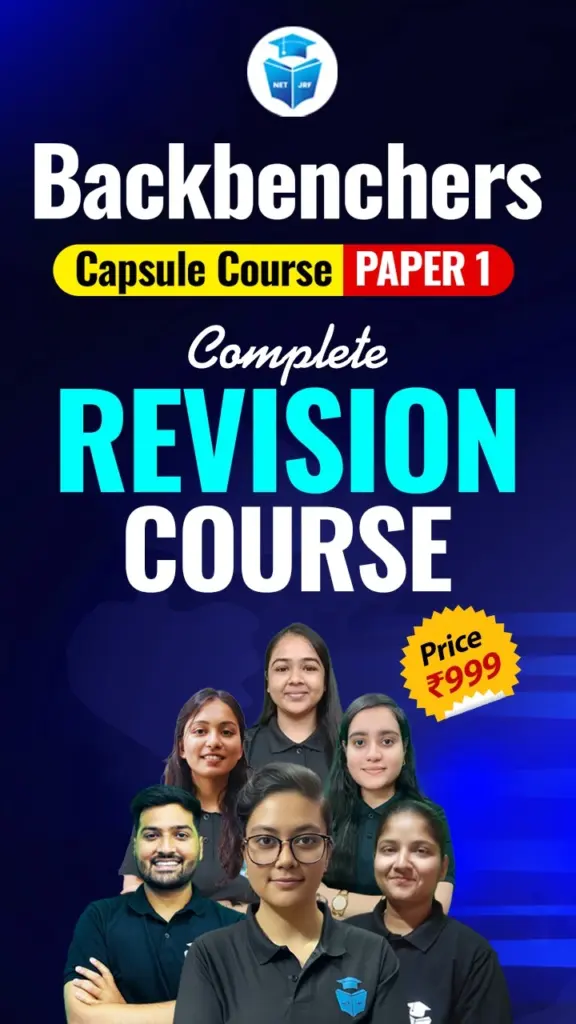UGC NET Performing Arts: Dance/Drama/Theatre 2025 is a prestigious national-level examination conducted by the National Testing Agency (NTA) on behalf of the University Grants Commission (UGC). The exam was held on 7 January 2026 in Shift 2 (03:00 PM to 06:00 PM) and serves as a key gateway for candidates aspiring to become Assistant Professors or to qualify for the Junior Research Fellowship (JRF) in dance, drama, and theatre.
It recognizes a candidate’s in-depth knowledge of India’s rich performing arts heritage, encompassing both classical and contemporary traditions.
UGC NET Performing Arts- Dance/Drama/Theatre 2025 Exam Analysis
The UGC NET 2025 exam for Performing Arts (Dance/Drama/Theatre) was conducted by the National Testing Agency (NTA) under the revised pattern. The paper was divided into two parts: Paper 1 (General Aptitude) and Paper 2 (Subject-Specific: Performing Arts). Based on candidate feedback and expert reviews, the exam was overall rated as moderate, with Paper 2 containing both theoretical and application-based questions.
Paper 1 (2nd shift) on 7 January 2026 maintained a moderate overall difficulty level, with good attempts ranging from 40-45 out of 50 questions. The paper balanced conceptual, PYQ-based, and assertion-reason questions across all units, featuring moderate challenges in Logical Reasoning (syllogisms, statement-based) and Data Interpretation (table/graph with percentages/ratios), while ICT basics and Teaching Aptitude proved easier. Reading Comprehension involved factual/inference tasks from one passage, and the Higher Education System emphasized NEP 2020 chronology, making the paper manageable for prepared candidates with strong time management.
Also Read: UGC NET Paper 1 Exam Analysis 2025 December
UGC NET Paper 2 Performing Arts (Dance/Drama/Theatre) Shift 2 on January 7, 2026, aligned with the latest exam pattern, featuring moderate to slightly difficult questions on Indian classical dance/Natya Shastra (5-6 moderate), theatre history (4-5 moderate), drama theory (5-6 moderate-difficult), folk theatre (3-4 easy-moderate), modern theatre (3-4 moderate), stagecraft (2-3 moderate), notable playwrights (3-4 easy), aesthetics/rasa (2-3 slightly difficult), and performance analysis (2-3 moderate). The paper emphasized classical texts, performance techniques, and aesthetics per today’s syllabus focus. Prepared candidates could achieve 50-60% via targeted PYQ practice on these topic distributions.
Overall, UGC NET Performing Arts (Dance/Drama/Theatre) Shift 2 on January 7, 2026, was moderate in difficulty.
Paper 1 allowed 40-45 good attempts out of 50, with tougher logical reasoning/Data Interpretation but easier ICT/Teaching Aptitude/NEP 2020.
Paper 2 balanced classical dance/Natya Shastra, theatre history, drama theory, folk/modern forms, and aesthetics/rasa, targeting 50-60% for prepared candidates.
Also Read: UGC NET Exam Analysis 2025 December
What is UGC NET Performing Arts- Dance/Drama/Theatre?
The UGC NET in Performing Arts is a subject-specific examination under the Humanities and Arts stream. It assesses the candidate’s academic knowledge, analytical skills, and critical appreciation of performing arts—including traditional and contemporary forms of dance, drama, and theatre. It also evaluates their readiness for teaching roles and doctoral research in these domains.
By clearing this exam, candidates can become part of educational institutions, cultural bodies, and research organizations, contributing to India’s performing arts heritage and its global understanding.
UGC NET Performing Arts Exam Objectives
- To assess the postgraduate-level expertise in Dance, Drama, and Theatre disciplines.
- To establish eligibility for Assistant Professorship in Indian universities and colleges.
- To offer Junior Research Fellowships (JRF) to outstanding candidates, supporting MPhil/PhD research.
- To foster academic excellence and promote research in traditional, folk, and modern performance forms.
- To encourage documentation, preservation, and innovation in Indian performing arts.
Also Read: UGC NET Exam 2025
UGC NET Performing Arts 2025 Key Highlights
| Feature | Description |
| Exam Name | UGC NET Performing Arts: Dance/Drama/Theatre 2025 |
| Conducting Body | National Testing Agency (NTA) |
| Mode of Exam | Computer-Based Test (CBT) |
| Exam Type | Two Papers (Paper I – General, Paper II – Subject Specific) |
| Total Questions | 150 (50 in Paper I, 100 in Paper II) |
| Total Marks | 300 |
| Duration | 3 Hours (No sectional timing) |
| Language | English and Hindi |
| Negative Marking | No |
| Official Website | ugcnet.nta.nic.in |
UGC NET Performing Arts Eligibility Criteria 2025
Educational Qualification
- Candidates must hold a Master’s degree in Performing Arts, Dance, Drama, Theatre, or an allied field from a recognized institution.
- Final-year postgraduate students are eligible to apply provisionally.
- Degrees must be UGC-recognized and relevant to the performance disciplines.
Minimum Marks Requirement
- General / EWS / OBC-NCL / Third Gender: 55% aggregate in postgraduation.
- SC / ST / PwD / Transgender: 50% aggregate.
Age Limit
- For JRF: Maximum 30 years (as on the exam date).
- OBC-NCL: 3 years relaxation
- SC/ST/PwD/Women: 5 years relaxation
- For Assistant Professor: No upper age limit.
Also Read: UGC NET Eligibility 2025
UGC NET Performing Arts Exam Pattern 2025
Paper I – General Aptitude
- Common for all candidates.
- Tests general teaching/research aptitude, reasoning, and current trends in higher education.
- Questions: 50
- Marks: 100
Paper II – Subject-Specific (Dance/Drama/Theatre)
- Focuses entirely on Performing Arts.
- Assesses theoretical understanding, history, performance studies, stagecraft, and criticism.
- Questions: 100
- Marks: 200
Marking Scheme
- Each question carries 2 marks.
- No negative marking for incorrect answers.
- Combined Duration: 3 hours
UGC NET Performing Arts Syllabus 2025
The syllabus is designed to ensure candidates have strong theoretical grounding and practical knowledge in their respective fields of Dance, Drama, or Theatre. It blends classical theory with modern practices and research methodology.
Paper I (General Topics)
- Teaching and Research Aptitude
- Communication
- Reasoning (Logical, Analytical, Mathematical)
- Data Interpretation
- ICT (Information and Communication Technology)
- People, Development, Environment
- Higher Education System and Governance
Paper II (Performing Arts)
Includes, but is not limited to:
- Classical Indian Dance and Theatre Traditions (Natya Shastra, Abhinaya Darpana, etc.)
- Folk and Tribal Performance Forms
- Contemporary and Experimental Theatre/Dance
- Indian and Western Theatre History
- Acting Theory and Practice
- Choreography and Movement Techniques
- Stage Design, Light, and Sound
- Cultural and Comparative Performance Studies
- Literary Analysis and Performance Criticism
- Influence of Global Performance Movements on Indian Traditions
Download the official UGC NET Performing Arts Syllabus PDF from ugcnet.nta.nic.in or recognized academic portals.
| UGC NET Performing Arts- Dance/Drama/Theatre Syllabus PDF Download |
UGC NET Performing Arts Previous Year Papers
Analyzing previous year papers is essential for understanding:
- Exam structure and types of questions
- Weightage of topics
- Trends in repeated topics or performance forms
Download Previous Year Papers:
| Year | Download Link |
| 2025 (December session) | Available Soon |
| 2025 (June session) | Download PDF |
| 2024 | Download PDF |
| Download PDF | |
| 2022 | Download PDF |
| 2021 | Download PDF |
| 2020 | Download PDF |
| 2019 | Download PDF |
These papers can also be used to simulate mock tests and assess your preparation.
Career Scope After UGC NET Performing Arts
Clearing UGC NET in Performing Arts significantly widens your professional horizon in both academia and creative industries.
Academic Career
- Assistant Professor or Lecturer at universities and colleges
- Curriculum Designer or Arts Education Consultant
- Pursue PhD programs in Theatre, Dance, or Performance Studies
- Join research projects at cultural bodies like Sangeet Natak Akademi, ICCR, and universities
Creative and Government Roles
- Director, Choreographer, Performance Educator
- Content Creator for e-learning platforms
- Cultural Program Manager in government and NGOs
- Translator, Archivist, or Cultural Policy Analyst
- Media roles including scriptwriting, production, editing
Freelance and Global Opportunities
- International fellowships and residencies in Performing Arts
- Participation in international theatre/dance festivals
- Cultural diplomacy through ICCR or embassies
UGC NET Performing Arts Preparation Tips
- Start Early: Begin your preparation at least 5–6 months in advance.
- Understand the Syllabus: Know each unit and subtopic thoroughly.
- Make a Study Schedule: Divide your time between Paper I and II, allowing for revisions and tests.
- Choose the Right Resources: Refer to NCERTs, academic journals, previous question papers, and standard texts like Natya Shastra, Theatre of the Oppressed, etc.
- Mock Tests and Time Management: Practice regularly under timed conditions.
- Join Study Groups: Group discussions help reinforce concepts and build perspective.
- Stay Updated: Keep track of recent performances, trends, and research in performing arts.
Conclusion
UGC NET in Performing Arts 2025 helps you build a career in teaching, research, and theatre. The exam checks your knowledge of dance, drama, and theatre arts. By qualifying, you can teach in colleges, do research, or work in cultural organizations. With the right preparation, you can grow in the field and help promote India’s rich tradition of performing arts.
UGC NET Performing Arts- Dance/Drama/Theatre 2025 FAQs
What is the eligibility criteria for UGC NET Performing Arts 2025?
You need a Master’s degree in Performing Arts or a related field with at least 55% marks (50% for reserved categories). Final-year students can also apply provisionally.
Can I choose any one of Dance, Drama, or Theatre in Paper II?
Yes, candidates specialize in their chosen discipline—Dance, Drama, or Theatre—and the questions in Paper II align with that domain.
Is the UGC NET Performing Arts exam difficult?
The exam is competitive but manageable with the right strategy, consistent preparation, and a clear understanding of the subject and research methodology.
What are the benefits of clearing UGC NET Performing Arts with JRF?
You can pursue a fully funded PhD, receive a monthly stipend, and become eligible for prestigious research projects and academic positions.
Are there job opportunities apart from teaching after this exam?
Absolutely. You can work in cultural institutions, media, NGOs, government departments, or even freelance as a choreographer, director, or researcher.
